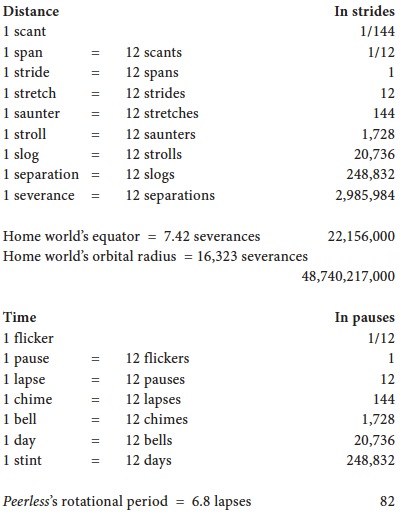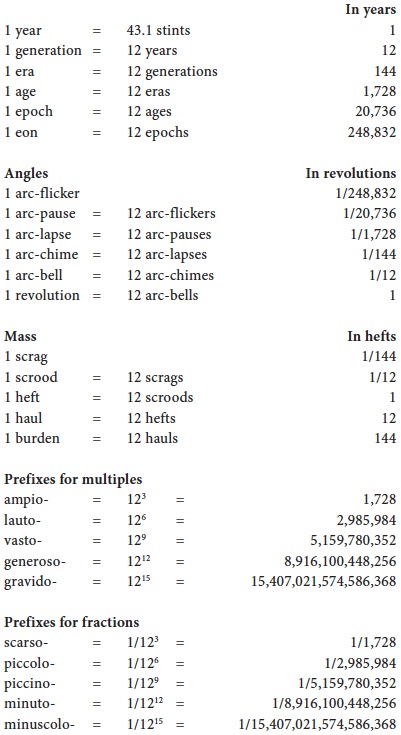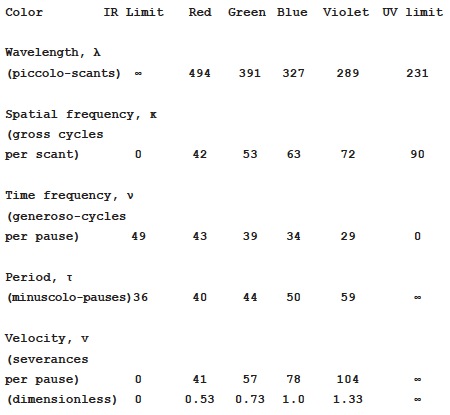rocket was transformed into a dazzling circle. If the beam hadn’t been aimed to one side of the dome, it would have been blinding.
Councilor Prospero gave the second speech, reminding everyone that he’d always been opposed to bringing orthogonal matter into the
Patrizia handed out food, but tactfully steered away from Carlo. He’d grown used to seeing her beside Carla: one post-maternal, the other fasting, and the difference in their size no longer looked strange to him. But the sight of so many women eating in public was hard to ignore. When he woke in the night with hunger pangs he could remind himself of the burden he was sharing with his co—but to be reminded that the burden itself was redundant was harder to take.
By evening the celebrations were growing muted. One by one, the guests congratulated the experimenters and departed. Leonia sat harnessed at the telescope, tirelessly checking and re-checking the rocket’s progress.
Carla approached him. “I’m leaving now,” she said. “Can we go together?”
“Of course.” Carlo bade farewell to the others, tickling Leonia until she moved aside and let him take a last peek at the
In the corridor, Carla was pensive.
“How long do you think it will take to scale up now?” he asked her. “To engine size?”
“A dozen years at least,” she said. “Maybe twice that.”
She’d hinted at a similarly daunting time scale before, but Carlo wasn’t convinced. “You’ve spent too long begging for resources, it’s made you pessimistic. Now that you’re the Council’s favorite, all of that’s going to change.”
Carla buzzed. “The Council can be as magnanimous as they like, but we’re talking about enough spin- polarized clearstone to cover the base of the mountain. We don’t even have that much ordinary clearstone, of any kind. We’re going to need to find ways to manufacture it.”
“I know. But once you get started,” Carlo predicted, “you’ll find new ideas, new short-cuts, new improvements. Isn’t that how it always goes?”
“I hope so,” she said. “Maybe Leonia will see the engines completed. Her generation, if things go well.”
They’d reached Carlo’s apartment.
“Will you invite me in?” she asked him.
He was afraid now. “Why would I do that?”
Carla put a hand on his shoulder. “I’ve had everything I wanted from life. I’ve completed everything I hoped to complete. Our children should be born now, before you’re much older. Don’t you want to see our grandchildren?”
Carlo felt himself shivering. “I don’t care about that. I don’t want to lose you.”
“And I don’t want to go the way of men,” she said. “It almost happened to me once, out at the Object. That’s not the end I want.”
“It won’t seem as bad if you’ve seen your own daughter,” Carlo promised. “That’s what makes it easier for men. You should talk to Patrizia! She’ll tell you!”
Carla was unswayed. “You know I made up my mind a long time ago.”
“Change it,” he pleaded. When he’d joined her in the famine he’d told himself it would help undermine her resolve: by letting her eat a little more, she’d be one step closer to Patrizia—and clear-headed enough to be envious that her own concentration was still not quite as good.
“I can’t,” Carla said. “It’s not in me. Ever since I was a child this is what I’ve imagined.”
“Because you never knew you’d have a choice!” Carlo shuddered and added angrily, “What did I fight for, if it wasn’t that choice?”
Carla squeezed his shoulder. “And now I’m making it. You didn’t waste your time. Maybe our daughter will choose differently.”
She pushed open the door and dragged herself into the apartment. Carlo clung to the rope in the corridor, wondering what she’d do if he simply fled. He did not believe she’d stop taking holin; she’d keep trying to persuade him, without bludgeoning him with a threat like that. But if he kept refusing her—stint after stint, year after year— she’d find a co-stead easily enough.
Carla appeared in the doorway.
“Come to bed,” she said. “We should sleep on this. We can lie together and see what the morning brings.”
Appendix 1:
Units and measurements


Appendix 2:
Light and colors
The names of colors are translated so that the progression from “red” to “violet” implies shorter wavelengths. In the

The smallest possible wavelength of light, ?min, is about 231 piccolo-scants; this is for light with an infinite velocity, at the “ultraviolet limit”. The highest possible time frequency of light, ?max, is about 49 generoso-cycles per pause; this is for stationary light, at the “infrared limit”.
Appendix 3:
Vector multiplication
and division
The travelers on the

